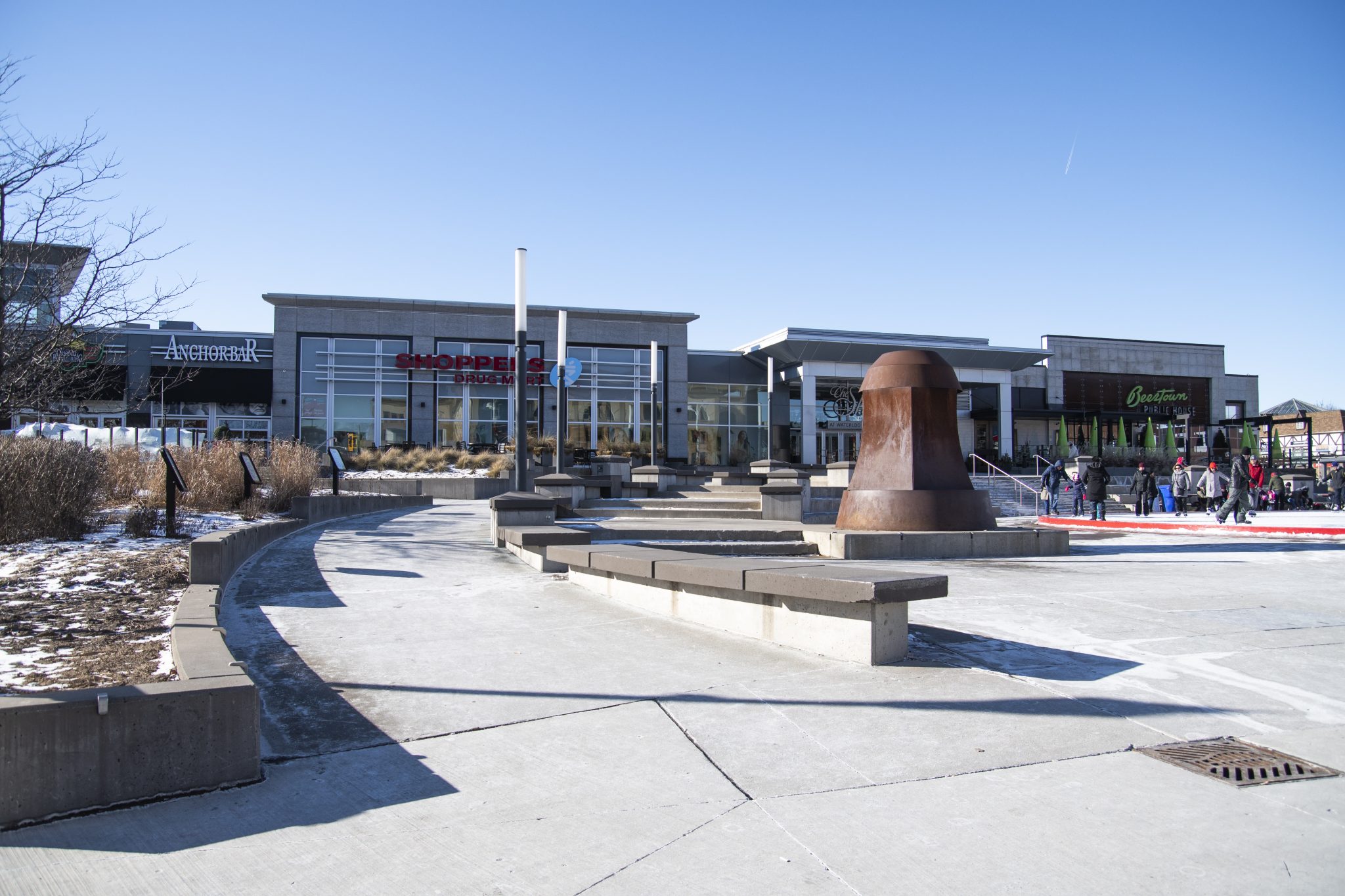Wet’suwet’en First Nations advocacy strikes in Waterloo bring together over 200 activists


Last week, on the evening of Jan. 8, a group of nearly 200 local activists joined together in Uptown Waterloo square to demonstrate their solidarity with the Wet’suwet’en First Nations.
The solidarity protest, one among many held across the country, was in response to recent conflicts in British Columbia between the Wet’suwet’en peoples and Coastal GasLink. The company is in the process of building a 700-kilometer natural gas pipeline that will run through Wet’suwet’en territory.
After months of protest and dispute regarding the building of this pipeline on ancestral lands, members of the Wet’suwet’en had set up a road blockade to prevent Coastal GasLink workers from proceeding.
Last week, in response, the RCMP arrived to forcefully remove the blockade and arrest protesters following a court injunction.
Those who congregated on Tuesday in Kitchener-Waterloo came with banners, signs and drums to show their support for the Wet’suwet’en peoples as well as all Indigenous land disputes taking place across the continent.
“I was pleased with the turnout … there was a lot of support from students and from the community,” said Tamara Lorincz, who was in attendance at the protest on Tuesday and is a member of KW Peace.
The blockade formed by solidarity protesters was meant to be a symbolic action, directly referring to the blockade set up at the Gidimt’en access point in northern British Columbia.
Some of the signs and banners brought to the protest read statements such as “Respect our Water” and “Honour the Treaties.”
“There were a couple of short speeches and some drumming, and then people moved into the intersection at King Street to block traffic … It was led by Indigenous women with drums who formed a circle in the middle of the intersection.”
The drumming circle that was observed encouraged participation by protesters, as well as passers-by and young children who were seen dancing joyfully to the music.
The traffic blockade by protesters caused Grand River Transit buses to halt and eventually “turn off their engines and the drivers went to wait in the square,” Lorincz added.
“There was more a spirit of solidarity during the blockade and positive energy,” Lorincz recalled. “There wasn’t any kind of aggressive energy at all.”
“After about maybe 15 minutes of blocking the traffic, the police showed up [and] were really just encouraging cars to not wait and to move away from the [demonstration],” Lorincz said.
Waterloo Regional Police officers were thanked by protesters for being notably respectful about the solidarity demonstration.
The blockade formed by solidarity protesters was meant to be a symbolic action, directly referring to the blockade set up at the Gidimt’en access point in northern British Columbia.
“I was really glad that something took [place] in Kitchener-Waterloo in solidarity because it was an international day of action” Lorincz added.
Solidarity protests for the Wet’suwet’en First Nations were seen all across Canada last week, most notably in Vancouver which saw hundreds of people marching through the downtown streets to encourage support, awareness and action.

